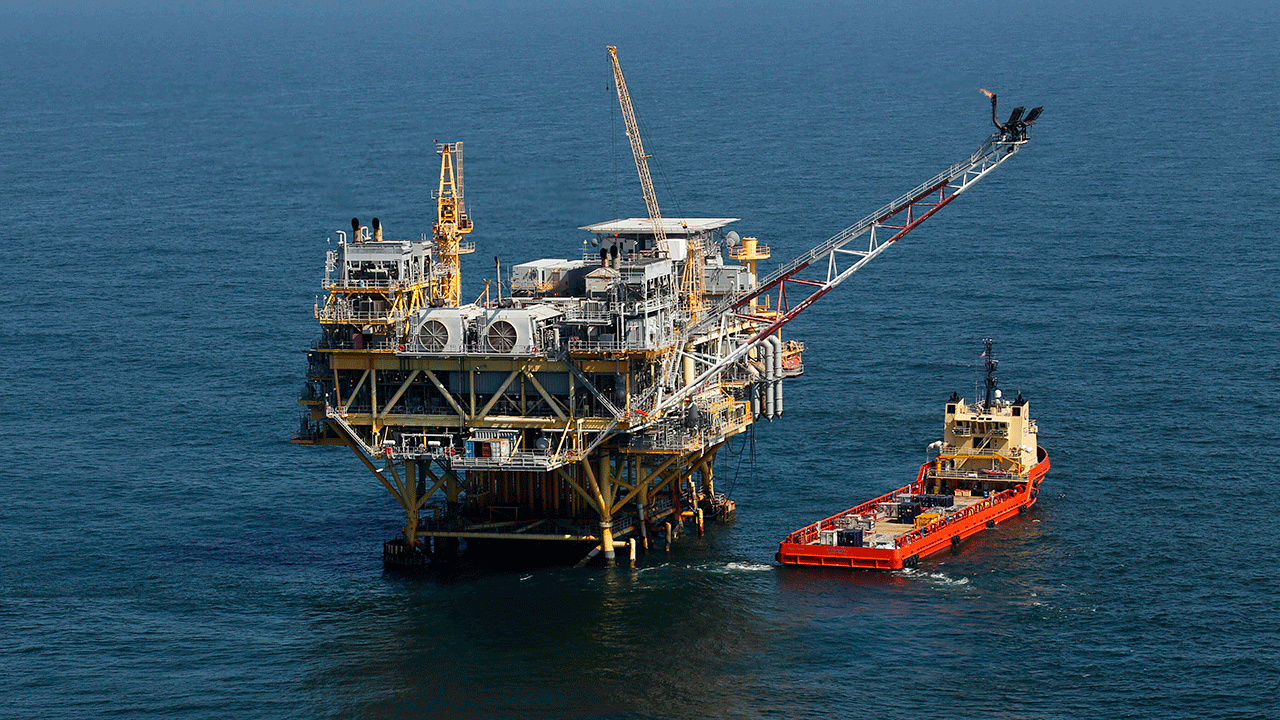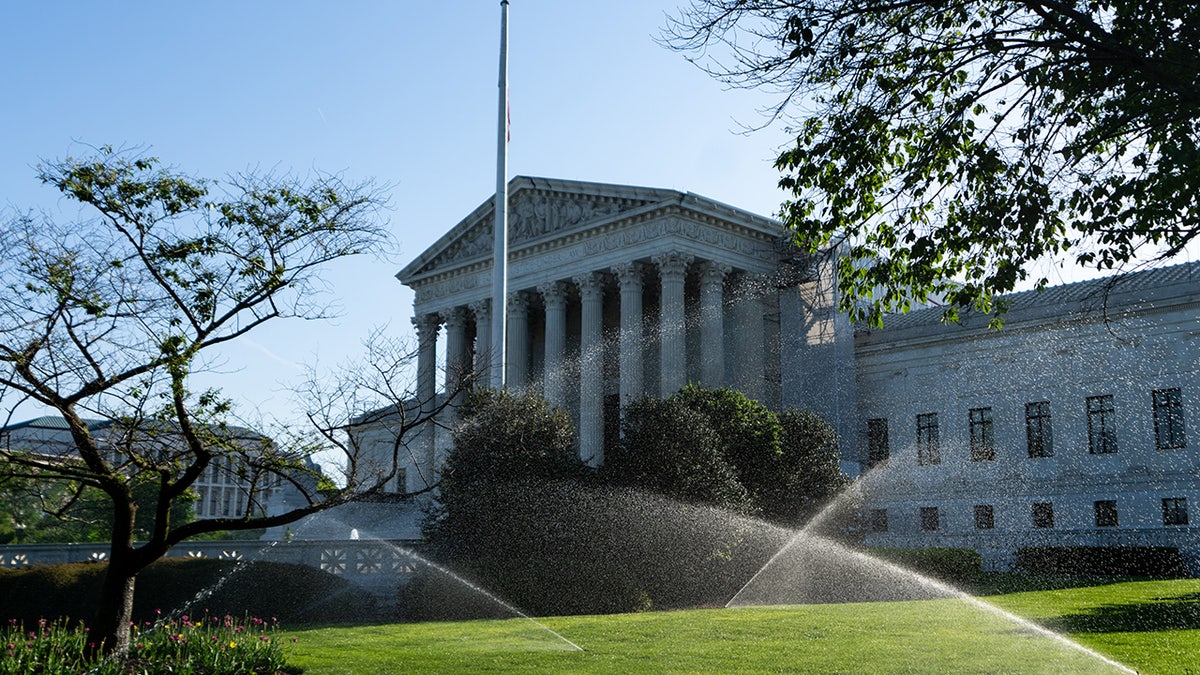First on Fox: A new report from a US energy advocacy group raises concerns over a legal training program it says is “corruptly influencing the courts and eroding the rule of law to instill fear about climate change.”
A new report released by the American Energy Institute (AEI) accuses the Environmental Law Institute’s Climate Justice Project (CJP) of “falsely portraying itself as a neutral entity educating judges on questionable climate science.”
The report also alleges that CJP is a partner of over two dozen public litigators Suing energy providers Holding them accountable for the harms caused by the effects of climate change. To date, CJP has trained more than 2,000 state and federal judges, the report said.
Jason Isaacs, CEO of the American Energy Institute, says the training program is “really like intervening in the referee’s work before a match and before the game.”
Hawaii’s big oil suit is a ‘stalking horse’ to advance Green New Deal nationwide, experts say
A natural gas vent burns near an oil pump jack at the New Harmony Oil Field on June 19, 2022 in Grayville, Illinois. (Getty Images)
“You’re getting access to them and sharing your opinions and leading them down a certain path,” Isaac said in an interview with Fox News Digital.
Nick Collins, a spokesman for the Environmental Law Institute (ELI), said the report was “riddled with misinformation.”
“The Climate Judiciary Project is a nonpartisan, educational initiative that provides judges with a mainstream, evidence-based science curriculum. CJP does not take positions on individual cases, advocate for specific outcomes, participate in litigation, support or coordinate parties in litigation, or advise judges on how they should make decisions. ELI’s funders include individuals, institutions, and organizations, including energy companies, government agencies, and private philanthropies, and none of them direct our work,” Collins said.
In recent years, a number of lawsuits targeting big oil companies have reached the courts, leveraging mechanisms such as public nuisance laws to seek liability for harm caused by climate change.
One such case is pending in the US Supreme Court. In 2020, the city of Honolulu sued several major fossil fuel companies, including Exxon and Chevron, alleging that the companies’ products cause greenhouse gas emissions and global warming without warning consumers about the risks.
The energy companies appealed to the Hawaii Supreme Court, arguing that federal law prevents individual states from effectively shaping energy policies for all states.
GOP state AGs pressure Supreme Court to take Hawaii climate change case, calling it a ‘grave threat’

An oil rig and supply vessel are shown in the Gulf of Mexico off the coast of Louisiana. (AP Photo/Gerald Herbert/File)
But the court ruled against the companies and moved the case forward to trial. The companies appealed again, this time to the Supreme Court, which in June showed interest in pursuing the case.
Hawaii Supreme Court Justice Mark E. Recktenwald quietly revealed in May that he had applied for a course at the Climate Justice Project. According to ELI, the Climate Justice Project aims to teach judges across the country how to tackle climate change. Climate change lawsuit whoever comes before them.
“As climate litigation continues to grow, judges must consider complex scientific and legal questions, many of which are rapidly evolving,” CJP writes on its website. “To address these issues, the Environmental Law Institute’s Climate Judiciary Project is collaborating with leading national judicial education institutions to meet judges’ need for basic familiarity with the methods and concepts of climate science.”
But AEI says the program is “participating in this anti-democratic social engineering” because it exerts influence on judges involved in cases like the Hawaii case, and is funded by “the same left-wing moneyed tycoons who fund climate change cases.”
The report said the “academic material” was “produced by activist academics who are advising plaintiffs or supporting their claims with legal briefs. And this material is filled with messages in favor of plaintiffs, including bogus ‘studies’ created for the lawsuit.”
The report also alleges that “CJP conceals its relationship with plaintiffs, leaving judges seeking information in good faith unaware that CJP is an unreliable source” and calls on “relevant state authorities to ensure that public resources are not used to fund a campaign that is detrimental to the rule of law and confidence in the courts.”
Republican governors slam Biden’s energy policy: ‘Did nothing but attack American energy’

In recent years, a number of lawsuits targeting big oil companies have reached the courts, leveraging mechanisms such as public nuisance laws to compensate for damages caused by climate change. One such case is pending in the US Supreme Court. (Getty Images/File)
According to the AEI report, CJP has received “millions in funding from activist groups that are providing grants to the Collective Action Fund, which in turn funds Sher Edling LLP, the law firm leading the Hawaii case, to help cover the legal fees needed to bring climate cases.” According to its website, Sher Edling is an attorney for two dozen climate plaintiffs.
The U.S. Judicial Conference, which governs U.S. judicial systems, has cautioned judges against attending seminars where they might be subjected to “undue influence.”
The American Judicial Conference states, “It has been argued that this influence may be exerted through the content of the program, the interactions between judges and litigants before them, and the prerequisites provided to program attendees.”
The AEI report alleged that CJP “conceals its partnerships with plaintiffs because it knows these relationships pose judicial ethics problems.”
Click here to get the Fox News app
AEI says that Sandra Nichols Thiam, AEI’s vice president and director of judicial education, acknowledged this in a 2023 press statement, saying, “If we seemed partisan or had even the slightest semblance of bias, we could not do what we do.”
“Overall, CJP appears to have made too few disclosures to maintain any pretense of integrity,” AEI said. “But their admissions confirm that CJP exists to facilitate informal, one-off contacts between judges and climate activists under the guise of judicial education. And secrecy is essential to their operations, whose goal, as Thiam has stated, is to develop ‘a body of law supporting climate action.’”
AEI, which describes itself as “dedicated to promoting policies that ensure America’s energy security and economic prosperity,” says CJP’s actions are “an assault on the rule of law.”
“In the US, powerful people are not allowed to persuade and manipulate judges before their cases are heard,” the report said.

















